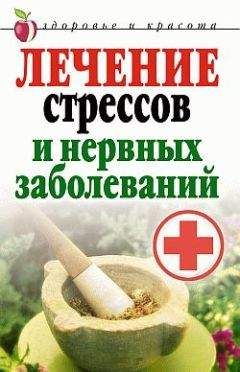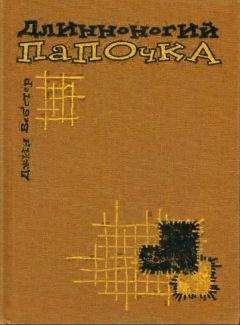Илья Франк - Английский язык с Дж. Уэбстер. Длинноногий Папочка
muddle [mAdl], misunderstanding ["mIsAndq'stxndIN], antecedent ["xntI'si:d(q)nt]
But Master Jervie and I got into a dreadful muddle of misunderstanding and we both hurt each other's feelings. The reason I sent him away was not because I didn't care for him, but because I cared for him so much. I was afraid he would regret it in the future — and I couldn't stand that! It didn't seem right for a person of my lack of antecedents to marry into any such family as his. I never told him about the orphan asylum, and I hated to explain that I didn't know who I was. I may be dreadful, you know. And his family are proud — and I'm proud, too!
Also, I felt sort of bound to you (к тому же я чувствовала себя вроде как обязанной вам; to feel — трогать, щупать; быть в каком-либо состоянии, чувствовать себя; bound — обязанный, вынужденный). After having been educated to be a writer (после того, как меня обучили, чтобы я стала писательницей), I must at least try to be one (я должна, по меньшей мере, попытаться стать таковой); it would scarcely be fair to accept your education (едва ли было бы честным принять ваше образование = принять от вас образование) and then go off and not use it (а затем сбежать /замуж/ и не использовать его). But now that I am going to be able to pay back the money (но теперь, когда я смогу: «собираюсь оказаться в состоянии» возвратить деньги), I feel that I have partially discharged that debt (я чувствую, что я частично уплатила этот долг; to discharge — разгружать, выгружать; выполнять долговые обязательства, платить, погашать /долг/) — besides, I suppose I could keep on being a writer (кроме того, я полагаю, что я могла бы продолжать быть писательницей) even if I did marry (даже если бы я действительно вышла замуж). The two professions are not necessarily exclusive (эти две профессии необязательно несовместимые; exclusive — исключительный, особый; исключающий, несовместимый).
I've been thinking very hard about it (я думала очень упорно об этом; hard — сильно, интенсивно; настойчиво, упорно, усердно). Of course he is a Socialist (конечно, он социалист), and he has unconventional ideas (и у него нетрадиционные убеждения; unconventional — чуждый условностям, нетрадиционный; idea — идея, мысль; мнение, взгляд, убеждение); maybe he wouldn't mind marrying into the proletariat (возможно, он не стал бы возражать жениться на пролетарке: «в пролетариат = в пролетарскую среду») so much as some men might (так сильно, как могли бы /возражать/ некоторые мужчины). Perhaps when two people are exactly in accord (возможно, что когда двое людей полностью сходятся во взглядах; accord — согласие, единство, гармония; to be in accord — сходиться во взглядах, придерживаться одного мнения), and always happy when together (и всегда счастливы, когда вместе) and lonely when apart (и одиноки, когда врозь), they ought not to let anything in the world stand between them (они не должны позволять ничему в мире вставать между ними).
scarcely ['skeqslI], partially ['pQ:S(q)lI], discharge [dIs'tSQ:dZ], unconventional ["Ankqn'venSqn(q)l], accord [q'kO:d]
Also, I felt sort of bound to you. After having been educated to be a writer, I must at least try to be one; it would scarcely be fair to accept your education and then go off and not use it. But now that I am going to be able to pay back the money, I feel that I have partially discharged that debt — besides, I suppose I could keep on being a writer even if I did marry. The two professions are not necessarily exclusive.
I've been thinking very hard about it. Of course he is a Socialist, and he has unconventional ideas; maybe he wouldn't mind marrying into the proletariat so much as some men might. Perhaps when two people are exactly in accord, and always happy when together and lonely when apart, they ought not to let anything in the world stand between them.
Of course I want to believe that (конечно, я хочу верить в это)! But I'd like to get your unemotional opinion (но мне бы хотелось получить ваше бесстрастное мнение). You probably belong to a Family also (вы, вероятно, также принадлежите к Семье), and will look at it from a worldly point of view (и взглянете на это с практичной точки зрения) and not just a sympathetic, human point of view (а не просто с сочувственной, человеческой точки зрения) — so you see how brave I am (вот вы видите, насколько я храбрая) to lay it before you (что выложила все перед вами; to lay — класть, положить; излагать, представлять /факты, сведения/).
Suppose I go to him and explain (предположим, что я пойду к нему и объясню) that the trouble isn't Jimmie (что проблема не в Джимми), but is the John Grier Home (а в Приюте Джона Грира) — would that be a dreadful thing for me to do (это будет ужасный поступок с моей стороны; thing — вещь, предмет; действие, поступок)? It would take a great deal of courage (это потребовало бы огромного мужества; deal — некоторое количество, часть; большое количество, масса). I'd almost rather be miserable for the rest of my life (я бы даже почти предпочла остаться несчастной на всю оставшуюся жизнь).
This happened nearly two months ago (это случилось почти что два месяца назад); I haven't heard a word from him (я не получила ни слова /весточки/ от него; to hear — слышать, услышать; получать известие, сообщение) since he was here (с тех пор, когда он был здесь). I was just getting sort of acclimated to the feeling of a broken heart (я как раз уже вроде бы как привыкала к ощущению разбитого сердца), when a letter came from Julia (когда пришло письмо от Джулии) that stirred me all up again (которое взволновало все во мне снова; to stir — шевелить, двигать; волновать, возбуждать).
unemotional ["AnI'mqVS(q)nql], sympathetic ["sImpq'TetIk], stir [stq:]
Of course I want to believe that! But I'd like to get your unemotional opinion. You probably belong to a Family also, and will look at it from a worldly point of view and not just a sympathetic, human point of view — so you see how brave I am to lay it before you.
Suppose I go to him and explain that the trouble isn't Jimmie, but is the John Grier Home — would that be a dreadful thing for me to do? It would take a great deal of courage. I'd almost rather be miserable for the rest of my life.
This happened nearly two months ago; I haven't heard a word from him since he was here. I was just getting sort of acclimated to the feeling of a broken heart, when a letter came from Julia that stirred me all up again.
She said (она сказала = сообщила) — very casually (совершенно мимоходом) — that 'Uncle Jervis' had been caught out all night in a storm (что «дядя Джервиc» попал на улице на всю ночь под дождь: «в грозу»; to catch — поймать, схватить; поймать, застигнуть, застать) when he was hunting in Canada (когда он охотился в Канаде), and had been ill ever since with pneumonia (и он болен с тех самых пор воспалением легких). And I never knew it (а я ничего не знала об этом; never — никогда). I was feeling hurt (я чувствовала себя обиженной) because he had just disappeared into blankness (потому что он просто исчез в пустоту = бесследно исчез; blankness — пустое, свободное место; пустота, опустошенность) without a word (не сказав ни слова: «без единого слова»). I think he's pretty unhappy (я думаю, что он очень несчастлив), and I know I am (и я знаю, что я /несчастлива/)!
What seems to you the right thing for me to do (что, как вам кажется, мне следует сделать; the right thing — как раз то, что надо)?
Judy
casually ['kxZVqlI], pneumonia [nju:'mqVnIq], disappear ["dIsq'pIq]
She said — very casually — that `Uncle Jervis' had been caught out all night in a storm when he was hunting in Canada, and had been ill ever since with pneumonia. And I never knew it. I was feeling hurt because he had just disappeared into blankness without a word. I think he's pretty unhappy, and I know I am!
What seems to you the right thing for me to do?
Judy
October 6th.
Dearest Daddy-Long-Legs,
Yes, certainly I'll come (да, конечно же я приеду) — at half-past four next Wednesday afternoon (в половине пятого, в следующую среду, днем). Of course I can find the way (конечно же, я могу найти дорогу). I've been in New York three times (я была в Нью-Йорке три раза) and am not quite a baby (и я не вполне младенец). I can't believe that I am really going to see you (я не могу поверить, что я действительно увижу вас) — I've been just thinking you so long (я представляла себе вас так долго; to think — думать, размышлять; представлять себе, воображать) that it hardly seems as though you are a tangible flesh-and-blood person (так что едва ли кажется вероятным то, что вы осязаемый человек из плоти и крови; tangible — доступный осязанию; осязаемый, ощутимый, реальный; flesh — тело, мясо; плоть).
You are awfully good, Daddy (вы ужасно добры, Папочка), to bother yourself with me (что беспокоитесь обо мне), when you're not strong (в то время как вы нездоровы; strong — сильный; здоровый, крепкий). Take care and don't catch cold (берегитесь и не простудитесь; to catch — поймать, схватить; заболеть, заразиться; cold — холод, стужа; простуда, насморк). These fall rains are very damp (эти осенние дожди очень сырые = эта осенняя погода очень промозглая; fall — падение; амер. осень).
Affectionately,
Judy
P.S. I've just had an awful thought (у меня только что возникла ужасная мысль). Have you a butler (у вас есть дворецкий)? I'm afraid of butlers (я боюсь дворецких), and if one opens the door (и если он откроет дверь) I shall faint upon the step (я упаду в обморок на ступенях; to faint — ослабевать /от усталости, голода и т.п./; падать в обморок, терять сознание; step — шаг; ступень, ступенька). What can I say to him (что я смогу ему сказать)? You didn't tell me your name (вы не назвали мне своего имени; to tell — рассказывать; говорить, сообщать). Shall I ask for Mr. Smith (мне спросить мистера Смита)?
tangible ['txndZqb(q)l], flesh and blood ["fleSqn(d)'blAd], butler ['bAtlq]
Dearest Daddy-Long-Legs,
Yes, certainly I'll come — at half-past four next Wednesday afternoon. Of course I can find the way. I've been in New York three times and am not quite a baby. I can't believe that I am really going to see you — I've been just thinking you so long that it hardly seems as though you are a tangible flesh-and-blood person.
You are awfully good, Daddy, to bother yourself with me, when you're not strong. Take care and don't catch cold. These fall rains are very damp.
Affectionately,
Judy
P.S. I've just had an awful thought. Have you a butler? I'm afraid of butlers, and if one opens the door I shall faint upon the step. What can I say to him? You didn't tell me your name. Shall I ask for Mr. Smith?
Thursday Morning (четверг, утро).
My Very Dearest Master-Jervie-Daddy-Long-Legs Pendleton-Smith (мой самый дорогой мастер-Джерви-Длинноногий-Папочка Пендльтон-Смит),
Did you sleep last night (вы спали прошлой ночью)? I didn't (я не /спала/). Not a single wink (ни разу глаз не сомкнула; single — единственный, один; wink — моргание, мигание). I was too amazed (я была слишком удивлена; to amaze — поражать, изумлять, удивлять) and excited (взволнована) and bewildered (смущена) and happy (и счастлива). I don't believe I ever shall sleep again (я не верю, что когда-нибудь снова засну) — or eat either (или поем). But I hope you slept (но я надеюсь, что вы спали); you must, you know, because then you will get well faster (вы должны, вы же знаете, потому что тогда вы выздоровеете скорее) and can come to me (и сможете приехать ко мне).




